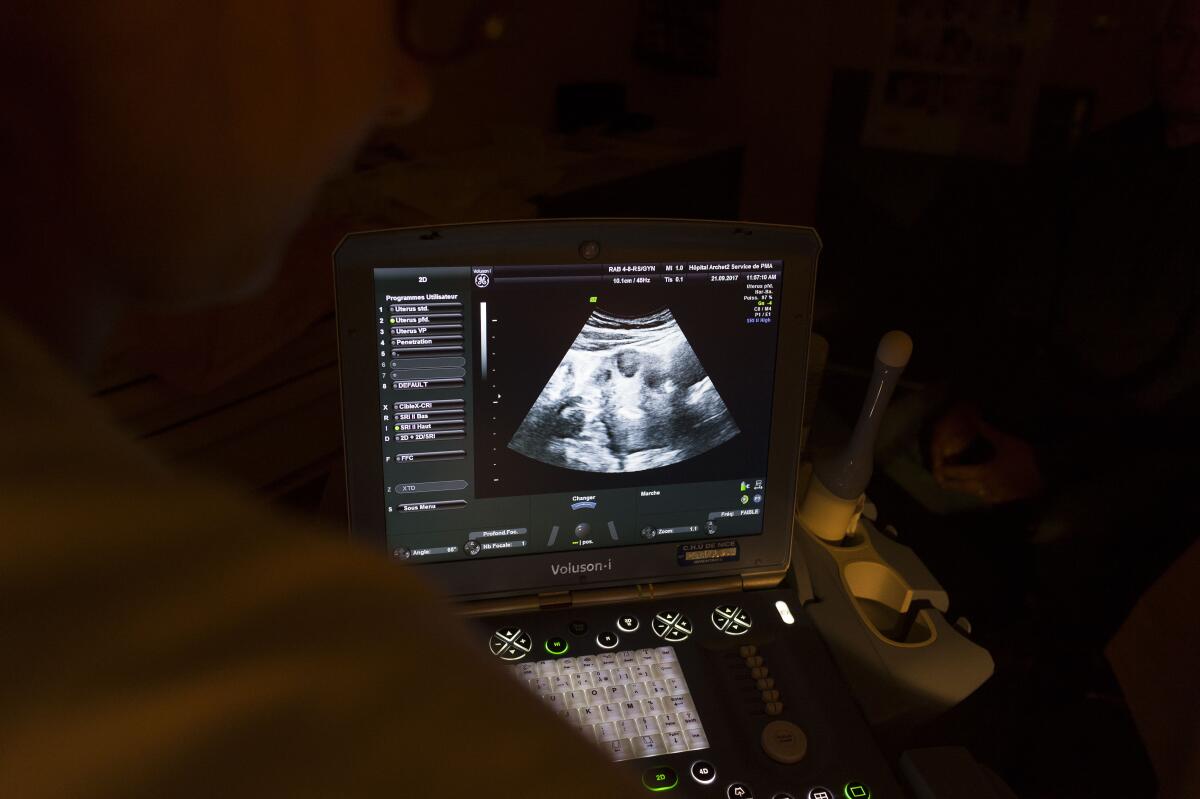California’s central role in the eugenics movement

Good morning, and welcome to the Essential California newsletter. It’s Tuesday, July 20. I’m Justin Ray.
From 1909 to 1979, California sterilized people in public hospitals and other state institutions by force or deception. The state apologized for its actions in 2003 but didn’t ban the practice until 2014. This month, under a budget passed by the Legislature and awaiting Gov. Gavin Newsom’s signature, the state agreed to pay reparations of up to $25,000 each to victims. Women who were imprisoned and coerced into getting sterilized — a story first exposed by the Center for Investigative Reporting in 2013 — would also be compensated.
The payments would make California at least the third state after Virginia and North Carolina to pay victims of the eugenics movement. Followers of the movement believed that people they deemed genetically unfit shouldn’t be allowed to reproduce.
Now, this next part might come as a shock: It has been well-documented that “California civic leaders helped popularize eugenics around the world, including Nazi Germany.” In fact, the state’s major role in the movement has its own Wikipedia page.
The Times has published stories supporting this assertion. They point to the major role a private Pasadena-based think tank played in promoting sterilization from 1926 to 1942.
“California is an enormous story in the history of eugenics,” Paul Lombardo, a professor at the University of Virginia’s Center for Biomedical Ethics, told The Times in 2003. “What makes California special is the work of the Human Betterment Foundation, how it shaped public policy, and the links between major players in the private sector and state officials who carried out the work.”
Then-Gov. Gray Davis issued the state’s apology in 2003 only hours after Lombardo gave a lecture to California lawmakers during a hearing. They were stunned, most of them having never learned this history.
In 1909, California became the third state to pass a forced-sterilization law (Indiana was the first). More than 30 states would adopt such laws, leading to about 60,000 procedures — a third of them in the Golden State, which repealed its law in 1979. Most of those operated on were poor, young women. Ulysses S. Webb, the state’s longtime attorney general, pushed for sterilization of “inebriates, prostitutes, tramps and habitual paupers found in our county poor-asylums.”
Meanwhile, the Human Betterment Foundation worked with state officials and served as spokesman and primary scorekeeper for the eugenics movement, keeping data on procedures across America. Archives at the California Institute of Technology shed light on the organization.
“Any common man will tell you that a herd of common, long-horn Texas or Mexican cattle can be converted to a high-grade Hereford or white-faced herd in three or four generations,” states a memo that bore the initials of Ezra S. Gosney, the Pasadena financier who started the foundation. “Man falls under the same laws of heredity. The only difference is that we have mixed the breeds and failed to teach our children to ... select their mates.”
“You were so kind to send ... new information about the sterilization particulars in California,” Dr. Fritz Lenz, one of Nazi Germany’s leading eugenicists, wrote to Gosney in 1937. “These practical experiences are also very valuable for us in Germany. For this I thank you.”
Here were some of the Human Betterment Foundation’s members: David Starr Jordan, Stanford University’s first president; Nobel Prize-winning physicist and Caltech head Robert A. Millikan; USC President Rufus B. von KleinSmid; and Lewis M. Terman, a Stanford psychologist who developed the IQ test.
Oh, and I should mention one more: Harry Chandler, who served as publisher of the Los Angeles Times from 1917 until his death in 1944. As we have reported, Chandler and The Times played a role in “popularizing eugenics and championing sterilization as the solution to perceived social problems such as crime and poverty.”
And now, here’s what’s happening across California:
Note: Some of the sites we link to may limit the number of stories you can access without subscribing.
L.A. STORIES
Inside one L.A. family’s $18-million COVID-19 fraud. A San Fernando Valley couple were returning from a Caribbean beach vacation in October when they ran into trouble. The FBI arrested the couple on a layover in Miami after investigating them for months — tailing suspects, rummaging through trash and poring over bank records. So began the unraveling of one of the more lurid scams in the U.S. last year as the government raced to send emergency funds to businesses upended by coronavirus lockdowns. Los Angeles Times
Cultural changes at Disneyland’s Jungle Cruise: The new Jungle Cruise shows that Disney wants to be in the cultural conversation rather than an artifact or, worse, a representation of the “good ol’ days,” game critic Todd Martens writes. “As much as Disney’s Imagineers talk about the importance of respecting and honoring people’s memories, the spaces will survive only if future generations can see themselves and their beliefs reflected.” Los Angeles Times
A man who is a suspect in the stabbing death of a college student in Compton has been apprehended with the help of TikTok and Instagram. Daisy De La O, 19, was stabbed to death outside her family’s apartment in February. The victim’s ex-boyfriend, Victor Sosa, was located after a lead from a campaign launched by De La O’s friends on social media, authorities said. Sosa has pleaded not guilty to first-degree murder. His attorney information wasn’t immediately available. ABC Los Angeles
'The Times' podcast
Our new weekday podcast, hosted by columnist Gustavo Arellano, takes listeners beyond the headlines. Subscribe on Apple Podcasts and follow on Spotify.
POLITICS AND GOVERNMENT
San Jose has launched a new community-built mental health platform meant to help youths find services. The website OneSJ contains mental health services in the city and throughout the Bay Area. It allows users to filter services by categories such as domestic violence, unhoused, LGBTQIA and students. It is offered in English, Spanish and Vietnamese. “This is a ‘for us, by us’ approach to building better digital services in the public sector,” said Clay Garner, the city’s deputy chief innovation officer. KRON4
CRIME AND COURTS
‘Egregious’ poaching case. Christopher Glenn Parks, 41, of Marysville has been charged with seven misdemeanor counts of illegally poaching wildlife for “personal gain.” Authorities say he illegally killed seven female deer and dumped their carcasses to avoid detection. A public defender representing Parks did not return requests for comment. Under a plea agreement, he will be required to pay a $10,000 fine and was placed on one-year probation. During that year, Parks must forfeit his rifle and will not be allowed to hunt. Los Angeles Times
Support our journalism
HEALTH AND THE ENVIRONMENT
California’s cliffs are collapsing. Researchers are stepping up their efforts to understand why bluffs are crashing down. “Collapsing coastal bluffs are a threat wherever waves, earthquakes and intense rainstorms can destabilize steep seaside terrain, and with sea levels rising, this risk is increasing,” Ramin Skibba writes. These falling bluffs threaten homes, vital infrastructures and lives. In August 2019, three people were killed while strolling along the beach of Encinitas, north of San Diego. The Atlantic
California utility says its equipment may be connected to wildfire. Pacific Gas & Electric equipment may be linked to the big Dixie fire burning in the Sierra Nevada, the nation’s largest utility reported to California regulators. In a Sunday report, PG&E said a repair man spotted blown fuses in a conductor atop a pole, a tree leaning into the conductor and fire at the base of the tree on July 13. The fire has grown to nearly 47 square miles. Los Angeles Times
CALIFORNIA CULTURE
Joshua Tree no longer affordable? Long-term residents of Joshua Tree say the neighborhood has become too expensive. The housing market has picked up steam, leading to many properties seeing multiple would-be buyers. This has been pushing out working families and eroding the area’s desert lifestyle for those who remain. “Traditionally in the spring we have about 80 houses for sale in Joshua Tree. Earlier this spring we only had 19,” a real estate agent said. Daily Yonder
Free online games
Get our free daily crossword puzzle, sudoku, word search and arcade games in our new game center at latimes.com/games.
CALIFORNIA ALMANAC
Los Angeles: You guessed it, a sunny day, 88. San Diego: A perfect day to barbecue, 81. San Francisco: Sunny, 69. San Jose: Sunny, 78. Fresno: Are you kidding me? Wow, sunny, 105. Sacramento: Crank up the A/C, 96.
AND FINALLY
Today’s California memory is from Jack Reynolds:
When I was about 5 years old we lived in Kettleman City. It was during WWII. The town was very small; two blocks in any direction and you were out in the short grass and tumbleweeds. A neighbor made cane fishing poles for me and my sister. We drove to the Tulare slough a short distance away. I had a cork float on my line and waited with great anticipation for it to bob which it did very soon. I lifted it up and had caught a bluegill. I became a fisherman at that instant.
If you have a memory or story about the Golden State, share it with us. (Please keep your story to 100 words.)
Please let us know what we can do to make this newsletter more useful to you. Send comments to [email protected].
Sign up for Essential California
The most important California stories and recommendations in your inbox every morning.
You may occasionally receive promotional content from the Los Angeles Times.




